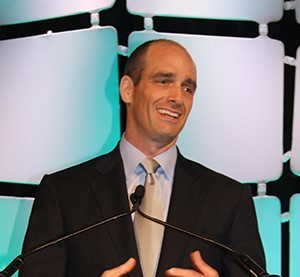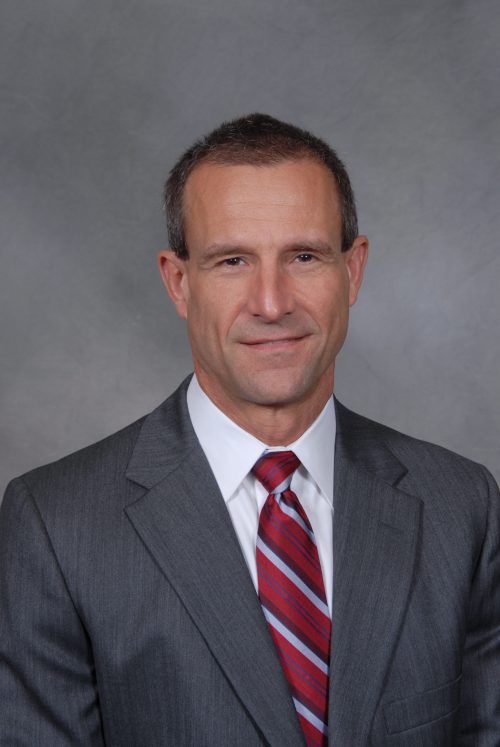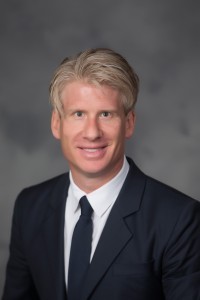Aaron Hobbs is president of RISE (Responsible Industry for a Sound Environment), a trade association in Washington DC that advocates on behalf of businesses that manufacture, formulate, and distribute pesticides for commercial and residential markets. An agriculture economist by education, Aaron has been in the role for eight years and with RISE for nine. Prior to that, he worked on hunting and fishing issues for the not-for-profit Congressional Sportsmen Foundation and as a full-time coordinator for Sportsmen for McCain during his run for president. Aaron and his family live in Arlington, Virginia.
- What led you to seek coaching, and why did you choose your particular coach?
I was fortunate to move into a leadership role at, what I consider, a fairly young age. This is my first executive role and largest team I’ve been responsible for. I knew I would benefit from a coach when I was hired, and the search committee agreed that it would be a valuable investment for the organization.
Gary Cohen is the second coach I’ve worked with. The first I found on my own. I’d been coaching myself through reading, my own study. I’d read a book and found the author offered coaching. We worked together for a year, but diminishing returns came rather quickly. He and I were far too much alike. And, frankly, he didn’t push me to look at things differently. It just wasn’t the right fit for me. Great guy, but he wasn’t helping me see a different perspective, challenge my thinking.
My board chairman at the time had done some work with Gary. “Now I’m going to warn you, he’s going to ask a lot of questions,” he said, “but I think you should give it a shot.” So I did, and I’ve been working with Gary for about four years. The majority of our conversations take place over the phone, but we see each other two or three times a year—whenever we can.
- Early on, what fears, if any, did you have about working with a coach, and why?
I was more curious if this would be helpful. I really didn’t have enough information to have any fears. If I had anything close to a fear, it was trust. To be successful, I knew I’d have to be really open with my thoughts. The coach had to be someone I could speak freely with and have confidence in that our conversations were confidential.
- What sort of return did you get from coaching?
I’m fairly confident that the speed at which I’ve matured is faster than if I didn’t have a coach. The reason I say that is that I was doing some self-study and seeking out resources on my own, but that is a slow process. The regular calls and routine of working with Gary, someone to hold me accountable, it’s facilitated change more quickly. I would have eventually got there on my own, but it would have taken a lot longer.
- How has your experience working with a CO2 coach met, exceeded, or departed from your expectations?
It has exceeded my expectations. Working with Gary has allowed me to clarify my thinking and become more purposeful. Some things I do differently now because Gary’s challenged them or I have. I’m not just doing them by default.
- While you’ve been working with CO2, what coaching strategies, philosophy, activities, and discussions open you up to change?
Gary is really good at balance. We’ve worked together long enough now that he knows when I’m looking for someone to empathize with me vs. needing a little shove. He asks a lot of questions, and he does it really well.
Gary knows how hard to push. His timing is great, though I almost fired him early in our work together because he pushed me too hard. In the moment, I was upset about it. Once I got away from it, I realized he was sincerely helping. We laugh about it now, and the outcome was great. It felt like it at the time, but it wasn’t too much.
- What changes have you made as a result of coaching?
I ask more questions—of myself and others. Why do we do this? Why do I do that? The majority of questions I ask of myself. Some things are still on autopilot, but I have greater clarity about why I do things—in my interactions, my engagement, my leadership.
I am becoming increasingly more measured at work. I’m certainly less reactive. When something goes awry, off plan, I’m more measured in my response. Part of that is maturity, after eight years on the job, and it’s something Gary and I have worked on as well.
- If you’ve made changes as a result of coaching, how have those changes made a difference in your work and/or personal life? Please share specific examples.
I recently got some negative feedback about one of our team members, and earlier I would have jumped right on it and likely had a disciplinary conversation. Instead, I was curious. I didn’t get into fight or flight mode. It turns out, a game of phone tag had taken place and what was reported wasn’t close to what was actually said. If I hadn’t taken time to be curious, I probably would have disciplined someone unfairly and maybe even cost someone their job.
- Have others (at work or at home) remarked on changes you’ve made as a result of coaching? If so, what have they said or seen?
My past board chair just two weeks ago remarked on how well things are going. He has seen the positive change in my relationships with other people in the industry. In the past, I’ve occasionally let pride get in the way and had difficulty managing some conflicts as a result. I now put the outcome first and am more selective about what I fight for.
I have a General James Stockdale quote on my computer: “You must retain the faith that you’ll prevail in the end, regardless of the difficulties, and at the same time you must confront the most brutal facts of your current reality, whatever they may be.” My work with Gary has helped me confront and address the brutal facts of our reality (mine and the organization’s), while also maintaining faith in our team.
- How and when do you (or those you lead) still tend to get stuck at work?
I’m not a believer in work/life balance, I’m just a believer in life balance. When this balance goes out with myself or one of my team members I see that it can cause us to get stuck. Knowing this helps me identify how we get the balance back to where it should be.
- What is a strategy that you think might help, but haven’t tried?
My issue at this point is not about trying new things, it’s about being consistent—consistently applying what has been shown to work, with rest, travel, and scheduling, etc.
- Does your coach do something that frustrates you or that you find not helpful? If so, describe.
Not anymore! We were still getting to know each other when we had the flare up I mentioned earlier. At this point, no.
- Does the value or nature of coaching change over time? If so, how?
Yes. In my work with Gary, I am still absolutely getting value from our relationship. It has changed; I own it—the work—now more than I did. In the beginning, Gary did most of the “labor,” and I observed. Year two, I was doing more of the work. His role was changing, still vital, but the amount of labor was decreasing. Now we’re doing the finishing touches on a construction project if you will. You can always make it a little better, here and there. Gary still has expertise through time and practice that I don’t. But now when we talk, there are times that I answer my own questions—before he even says anything.
- Gary is known for his question-based leadership approach. What questions (of his or your own) do you find helpful to use as a leader, and why?
“Is it true?”—This question comes up a lot, particularly when I’m stuck. I’ll ask myself, “Is it really true?” and “Do you really know that?” to make sure I’m not relying on assumptions or past logic.
“Curiosity creates opportunity”—This isn’t a question. It’s something I said once to Gary and that we both return to.
- If you were writing a book on coaching, what would be the main chapters? And what would be the main takeaway?
“Curiosity Creates Opportunity” would be the main takeaway. “Question everything” has a negative ring to it. It can imply an overzealous or overbearing approach, but it pays to be curious. You’ve got to know who you are to be a successful leader. Be curious about yourself. The more I’ve become curious about why I do things I’ve done my whole life, the more ownership I’ve taken of my actions and I’ve found opportunities for change and improvement.
As far as other chapters or takeaways, I think quick fixes don’t exist. It takes a sustained investment. You can do just about anything if you’re willing to give the time to it.
A Special Interview by Aaron Hobbs for CO2 Partners



